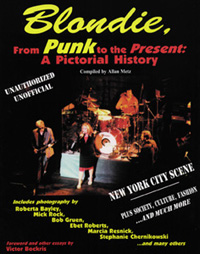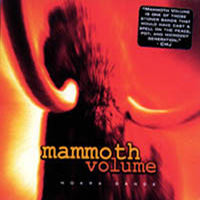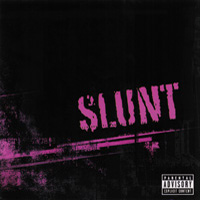 Blondie
Blondie
From Punk to the Present: A Pictorial History
Compiled by Allan Metz (Musical Legacy)
by Craig Regala
I’d imagine this to be hugely interesting to Blondie fans, or those wading through mid-’70s pop culture. It’s got a couple hundred b&w pics, and a bunch of great interviews including the one she did for High Times. As Ms. Harry was very candid about her heroin use (a subject that gave the Pot Yeah! Junk Nay! Crew over at High Times a rash), the editor of Dope Digest killed the needle talk and thereby the interview. Pity, it’s interesting to hear why she used and what she thinks about it. Also some nice cultural background stuff, like the essay by Jessamin Swearingen on the ’50s Beat Generation as a precursor to punk. I’d call you up and read it over the phone, but I lost your number. Sorry.
Besides the usual inflated claims for her and the band’s worth (really, that’s the purpose of such books, eh?), much half-assed sociology is essayed about her “place” in “punk.” Fan appreciation is printed, hokey drawings are reproduced in true NY fashion art, considered a by-product of attitude and politics. She and the band being a “pop” entity saw no shame in wholesale latching-on and exploiting anything that caught their eye. Any voice the band had as a musical entity was flushed away in their first couple years. The rational for such behavior: “artistic growth,” “relevance,” “entertainment value,” and “positive cash flow” is trotted out plainly. Like Barbara Krueger, they wanted to bite the hand that paid them, leaving little marks to prove they did give “the man” a tiny nip for a seven-figure payoff. This is the sassy NY way of maintaining “cred,” and they worked it and opened up a whole new market for this age-old game. Cynicism, as they say, is the sugar to make the bitter pill go down.
This is my take on the information presented and it doesn’t mean I think the book is bunk; the book’s great. A real look into the way people in and out of the band perceived the world outside of the NY/entertainment/advertising post-industrial culture’s response to Blondie.
(www2.drury.edu/ametz/blonbook.htm)



